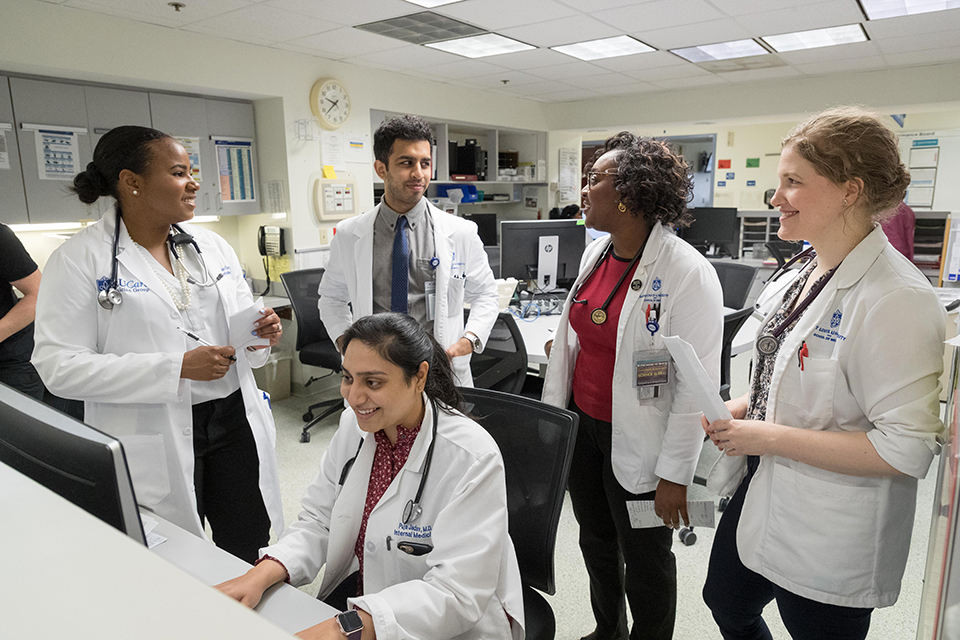Office of Ignatian Mission in Medicine
In keeping with the mission of Saint Louis University, as a Jesuit institution grounded in Ignatian spirituality and values, SLU School of Medicine will be a place where everyone is welcomed, respected, and supported, so that we may be a community-responsive leader, working in partnership to reduce health inequities and improve the health and well-being of the St Louis region.
The Saint Louis University School of Medicine is committed to the education of a culturally competent healthcare workforce. We seek to immerse SLU's medical students and graduate medical residents in a training atmosphere that prepares them for the practice of medicine within the communities we serve.
As we build this office to amplify our Ignatian mission, we will be thoughtfully engaging our stakeholders and community. We look forward to working with you.
Stay tuned. Together, we can.
Meet the Team
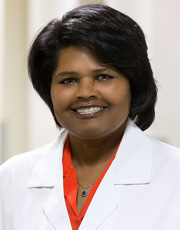
Katrina Wade, M.D.
Interim co-director and interim associate dean for the Office of Ignatian Mission in Medicine
Katrina Wade, M.D., has served Saint Louis University School o Medicine for more than 26 years as an emergency medicine physician, faculty member and mentor.
She is a professor, division of emergency medicine in the Department of Surgery and an associate professor of pediatrics. She has mentored and trained countless students, residents, paramedics and firefighters. While working as an attending physician, she has volunteered at the Health Resource Center and other community organizations that provide services to the underserved population of St. Louis.
Wade’s list of accomplishments is long and includes AOA (Alpha Omega Alpha) national medical honor society induction, awards such as The John H. Gladney, M.D. Diversity Award, the Missouri College of Emergency Physicians R.R. Hannas Emergency Physician of the Year Award, Faculty Choice for Outstanding Preceptor Award, and the list continues.
Wade is a passionate advocate for equitable access to medical education and looks forward to furthering the mission in the School of Medicine.
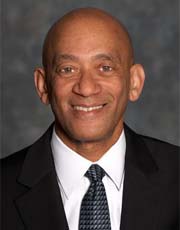
Michael T. Railey, M.D.
Associate professor emeritus
Michael Railey, M.D., is a native St. Louisan who graduated from St. Louis College of Pharmacy in 1972 and completed his medical school training in 1976 at the University of Missouri.
He began his academic teaching career with the St. Louis Family Residency Program at Forest Park Hospital. He was the first family medicine clerkship director at Saint Louis University and has also been the chief medical officer for St. Louis County.
Railey served as the dean of diversity and student affairs for 10 years and continues his work with the Office of Ignatian Mission in Medicine at SLU School of Medicine as a professor emeritus in the Department of Family and Community Medicine. He has written book chapters, magazine articles and journal publications in the areas of obesity, stress management without drugs, and health disparities in the St. Louis area. He remains committed to community service and is currently involved in collaborations with the St. Louis Board of Education, the African American Aldermanic Health Foundation, and other community outreach organizations.
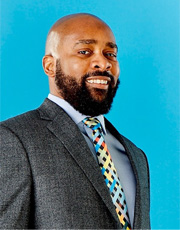
W. Maurice Redden, M.D.
Assistant dean
Maurice Redden, M.D., received his undergraduate degree in biology from Winston-Salem State University, in North Carolina. He then went to Brody School of Medicine at East Carolina University for his medical degree. Following medical school, he completed his adult psychiatry residency at Wake Forest University. Finally, he moved to St. Louis to pursue his geriatric psychiatry fellowship training at Saint Louis University.
He began his career in academic medicine, where he is now an associate professor in the Department of Psychiatry at Saint Louis University School of Medicine, where he also specializes in geriatric psychiatry.
He remains enthusiastic and extremely passionate to decrease the negative mental health stigma and disparities, in all patient populations but especially aging minorities.
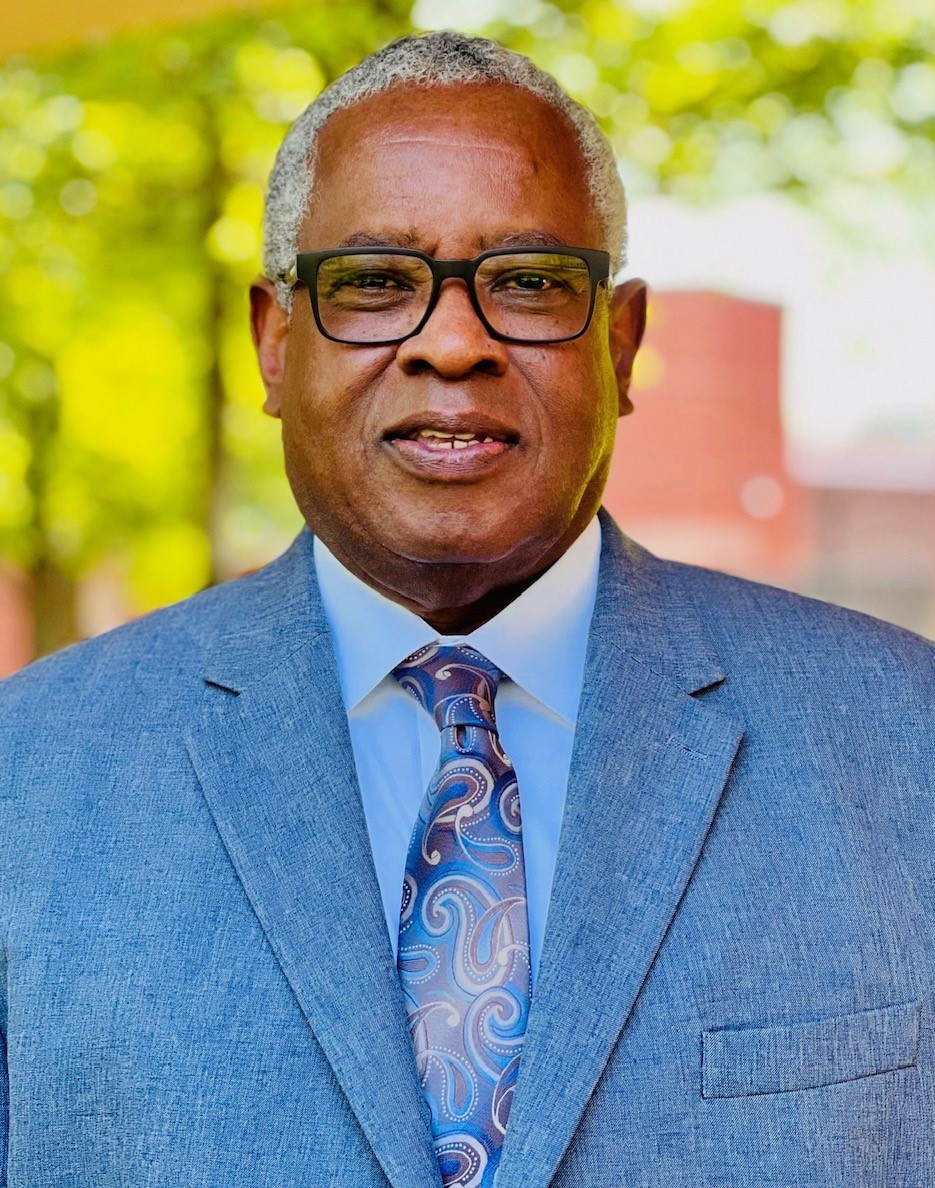
Tim Murrell, Ed.D.
Program director for pathway development, student engagement and retention.
Tim Murrell, Ed.D., is the program director for pathway development, student engagement and retention at Saint Louis University School of Medicine. In this role, Murrell develops programs to increase our pipeline by creating and maintaining relationships with various historically Black colleges and universities and Hispanic-servicing institutions. Murrell also focuses on developing relationships with local high schools to increase awareness of the medical field and opportunities for underrepresented-in-medicine students to explore. He supports current students, oversees our mentoring program, and provides emotional and academic support.
Prior to joining Saint Louis University, Murrell served as the inaugural principal of The Topeka Center for Advanced Learning and Careers and as the Topeka Public School District’s Coordinator for Career and Technical Education (CTE). In addition, he worked for several years as a teacher and administrator for the St. Louis Public Schools. Included in his work over the years, Murrell has collaborated with postsecondary partners to provide learning opportunities that promote inclusion for high school and college students, as well as staff.
Murrell holds a Bachelor of Science in Liberal Studies, a master’s degree in the administration of justice and human relations, a master's degree in educational leadership from SLU School of Education and a doctoral degree in educational leadership. A former U.S. Army Military Police company commander, he has taught criminal justice at the secondary and postsecondary levels.
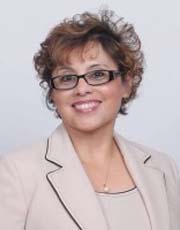
Esmeralda Aharon
Program director of faculty, staff, and community engagement
Esmeralda Aharon is the program director of faculty, staff, and community engagement in the Office of Ignatian Mission in Medicine at Saint Louis University School of Medicine (SLUSOM). In this role Aharon develops training and programming for faculty and staff that reflects the institution's commitment to social justice. Guided by the Jesuit values of cura personalis and faith that does justice, she collaborates with hiring managers to attract and retain individuals who have faced systemic barriers, challenging us to live out magis by striving for greater representation and empowerment. She develops and maintains relationships with community partners and institutions and creates recruitment pathways and retention programs focusing on senior-level staff and managers. Additionally, she connects and engages SLUSOM with the St. Louis community to mitigate healthcare disparities.
Prior to joining SLUSOM, Aharon served as the director of plans and programs for the Office of the Command Chaplain, Headquarters Air Mobility Command, Scott AFB, Illinois. Aharon holds a Bachelor of Science in Workforce Education and Development and a Master of Arts in Teaching Elementary Education. She is a decorated combat veteran of the U.S. Air Force. Aharon is experienced in community engagement, religious accommodation, and resilience training. She collaborated with Community Action and Suicide Prevention Teams and helping agencies, and developed programs impacting religious accommodation, diversity, equity, and inclusion for 136,000 employees in Air Mobility Command.
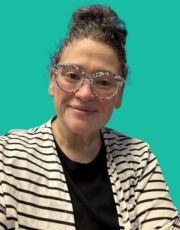
Valerie Lovelock
Executive assistant to Katrina Wade, M.D.
Interim co-director and interim associate dean
As executive assistant, Valerie Lovelock plans and directs all administrative, financial, and operational activities for the Office of Ignatian Mission in Medicine. She manages the department's training program, supports recruitment and retention programs, and provides oversight and guidance to various committees at the School of Medicine. In addition, she works closely with the co-directors to develop and implement new initiatives.
Prior to joining our team, Lovelock devoted her time to her family, homeschooling all three of their children. She also worked in various roles as a volunteer for her church, serving as the children’s ministry director, teacher, church administration, youth team, community engagement, and many other church-related projects. She serves as the education director for her home church. Lovelock served as the volunteer coordinator for the SLU virtual visit site in Old North St. Louis and continues to serve the community as a board member for the Old North Restoration Group. She served many years on a local homeschool group board as their membership and programming leader. Before leaning into full-time homeschooling, she studied and worked at Barnes Jewish Hospital as a registered medical assistant caring for post-surgical patients and as a phlebotomy technician. She is a full-time student pursuing her master’s degree in organizational leadership. She lives in St. Louis City and her passion for this community is evident through her dedication over the last 25 years of serving the community alongside her husband and children.
